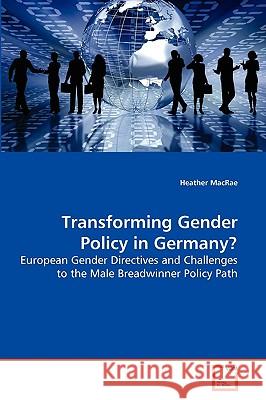Transforming Gender Policy in Germany? » książka
Transforming Gender Policy in Germany?
ISBN-13: 9783639270426 / Angielski / Miękka / 2010 / 212 str.
European institutions have begun to elaborate a distinctive gender regime. Relying on a largely liberal understanding of equality, European measures are frequently at odds with established policies in a number of member states, especially those where a male breadwinner/female caregiver regime predominates. This thesis examines the way in which European initiatives, inspired by the liberal gender regime, have fed into policy debates and reforms in Germany, a notoriously resilient male breadwinner state and a "laggard" in European gender policy. Three case studies (drawing on policy from the 1970s until 2005) are used to explore tensions between the nascent European gender regime and Germanys gender regime. The findings suggest that Europeanization of the German gender regime has been uneven and incomplete. Although the German gender regime cannot thus be said to have been transformed, the changes that have been introduced are contributing to the emergence of a hybrid regime, incorporating aspects of both the male breadwinner and the dual earner model.











